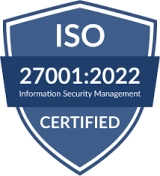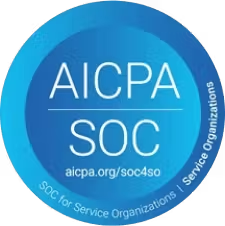Share on:
Running a small business in Nigeria comes with numerous challenges, and one of the most essential aspects is maintaining accurate financial records.
Accounting software can significantly streamline this process, making it easier to manage finances, comply with tax regulations, and make informed business decisions.
However, do you know how to determine which accounting software is best for your small business?
We understand that choosing the right accounting software for your small business in Nigeria can be a daunting task due to the variety of options available.
With this comprehensive guide, you’ll get to understand the essential factors to consider when selecting accounting software for your business needs.
What’s next? Let’s get started with the importance of accounting software!
Understanding the Importance of Accounting Software
Accounting software is a powerful tool that automates financial transactions, manages accounts payable and receivable, tracks expenses, and generates financial reports.
The Software offers several benefits for small businesses which include:
- Automating routine financial tasks saves time and reduces errors
- Reduces the likelihood of human error in financial calculations
- Helps ensure compliance with Nigerian tax laws and regulations
- Provides real-time financial data for better decision-making
- Can grow with your business, handling increased transactions and complexity
What are the features of this software?
Stay glued to find out!
Key Features to Look for in Accounting Software
When choosing accounting software for your small business, consider the following key features:
- Ease of Use: The software should have an intuitive interface that is easy to navigate, even for those with limited accounting knowledge.
- Invoicing and Billing: Ability to create and send invoices, track payments, and manage accounts receivable.
- Expense Tracking: Efficiently track and categorize business expenses.
- Bank Reconciliation: Automate the process of reconciling bank statements with your accounts.
- Inventory Management: Useful for businesses that manage inventory, allowing you to track stock levels and manage orders.
- Payroll Management: Manage employee salaries, wages, and deductions.
- Tax Compliance: Ensure the software supports Nigerian tax laws and regulations, including VAT and PAYE.
- Reporting: Generate comprehensive financial reports, such as profit and loss statements, balance sheets, and cash flow statements.
- Multi-Currency Support: Essential for businesses dealing with international clients or suppliers.
- Security: Ensure the software has robust security features to protect sensitive financial data.
Meanwhile, let's look at the step-by-step guide to help you choose the right accounting software for your small business.
Steps to Choose the Right Accounting Software
Here is a step-by-step guide to help you choose the right accounting software:
Step 1. Understand your business’s specific accounting needs. Consider the size of your business, the nature of your transactions, and the features you require.
Step 2. Determine how much you are willing to spend on accounting software. Remember that investing in good software can save you money in the long run by improving efficiency and reducing errors.
Step 3. Conduct thorough research to identify accounting software options that meet your needs and budget. Look for reviews and testimonials from other Nigerian small businesses.
Step 4. You might want to consider a Cloud-based accounting software as it offers flexibility. It can be accessed from anywhere with an internet connection. It also provides automatic updates and data backups.
Step 5. Ensure the software has robust security measures to protect your financial data from unauthorized access.
Step 6. Take advantage of free trials or demos to test the software’s functionality and ease of use. Ensure it integrates well with your existing systems and processes.
Step 7. Consult with other small business owners, accountants, or industry experts to get recommendations based on their experiences.
Step 8. Ensure the software provider offers reliable customer support to assist with any issues or questions that may arise.
Tyms Accounting Software for Small Businesses in Nigeria
As a financial accounting software, Tyms offers a lot of features for both small, medium, and large businesses.
Here are some of the top choices:
- Features: Invoicing, expense tracking, bank reconciliation, payroll, tax compliance, financial reporting, inventory management, and multi-currency support.
- Pricing: Offers various plans starting from basic to advanced, with monthly subscription fees.
- Suitability: Ideal for businesses of all sizes, especially those looking for an AI-driven solution.
Factors to Consider When Selecting Accounting Software
1. Business Size and Complexity: The size and complexity of your business play a crucial role in determining the right accounting software. For instance, a small business with straightforward transactions may not need the same level of features as a medium-sized business with more complex financial needs.
- Small Businesses: Look for software that offers basic features such as invoicing, expense tracking, and bank reconciliation. Free or low-cost options like Tyms, Wave, or Zoho Books may be sufficient.
- Medium-Sized Businesses: Consider software with advanced features such as inventory management, payroll, and multi-currency support. Options like Tyms, QuickBooks, Sage One, or Xero may be more suitable. But Tyms still remains the best and most efficient.
2. Industry-Specific Requirements: Different industries have unique accounting requirements. Ensure the software you choose caters to the specific needs of your industry.
- Retail: Look for software with robust inventory management and point-of-sale (POS) integration.
- Manufacturing: Ensure the software supports job costing, inventory tracking, and production management.
- Service-Based Businesses: Focus on software that offers project management, time tracking, and invoicing capabilities.
3. Integration with Existing Systems: Your accounting software should seamlessly integrate with your existing systems, such as your CRM, e-commerce platform, or payroll system. This ensures data consistency and reduces the need for manual data entry.
- CRM Integration: Helps in managing customer relationships and tracking sales.
- E-commerce Integration: Streamlines online sales and inventory management.
- Payroll Integration: Simplifies payroll processing and compliance with tax regulations.
4. User Access and Permissions: Consider who will be using the accounting software and what level of access they need. Most accounting software allows you to set different user roles and permissions.
- Admin Access: Full access to all features and settings.
- Accountant Access: Access to financial reports and accounting tasks.
- Employee Access: Limited access to expense reporting or timesheet submission tasks.
5. Mobile Access: With the increasing use of mobile devices, having access to your accounting software on the go can be highly beneficial. Look for software that offers mobile apps or a mobile-friendly interface.
- Mobile Apps: This allows you to manage finances, send invoices, and track expenses from your smartphone or tablet.
- Mobile-Friendly Interface: Ensures you can access key features from your mobile browser.
Final Thoughts:
Investing in the right accounting software will help keep your financial records accurate, comply with tax laws, and support your business's growth and success.
Once you pick your software, ensure a smooth transition by migrating your data, training your team, and customizing the software to fit your needs.
FAQs
What key features should I look for in accounting software?
Look for ease of use, invoicing, expense tracking, bank reconciliation, inventory management, payroll, tax compliance, reporting, multi-currency support, and strong security features.
Can accounting software help with tax compliance in Nigeria?
Yes, it supports Nigerian tax laws and regulations, automating tax calculations and making the necessary reports for tax filings.
What should I consider when choosing accounting software?
Consider your business needs, your budget, required features, industry-specific needs, integration with existing systems, user access, and mobile accessibility.
How can I ensure the security of my financial data with accounting software?
Choose software with data encryption, two-factor authentication, and regular security updates. Make sure the provider follows best practices for data security and data protection.


Tyms
7 mins read


Tyms
3 mins read


